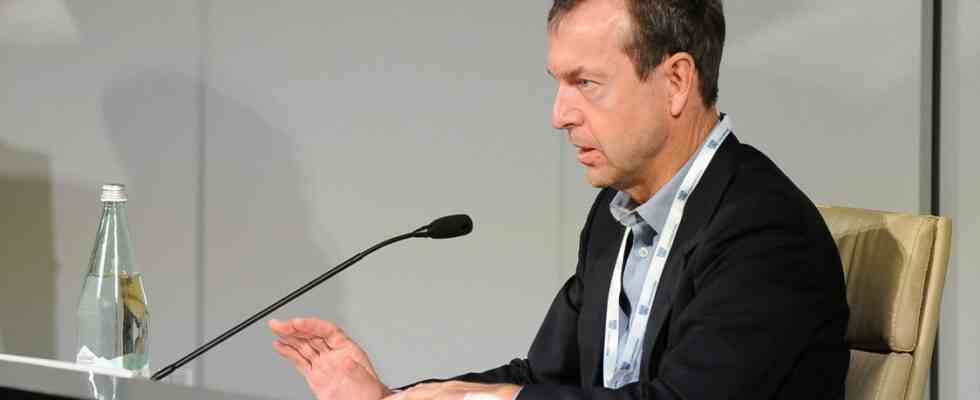If military language were not actually prohibited in this context, then one would have to state that German economists have engaged in an almost unprecedented verbal battle in recent weeks. The issue was: Should the West immediately stop all oil and gas imports from Russia because of Vladimir Putin’s attack on Ukraine? And if so, would such an embargo be economically manageable, or would Europe end up harming itself more than the Moscow general?
What got lost in the heated debate was the question of whether there are alternatives that would harm Putin without at the same time plunging parts of the western world into a deep recession. Such an idea, which has so far hardly been discussed in politics, was presented on Monday evening by Daniel Gros, board member of the Brussels Center for European Policy Studies, at the Munich Economic Debates of the Ifo Institute and Suddeutscher Zeitung before: the introduction of a tariff on energy imports.
The basic idea is simple. Instead of cutting supply volumes and starting an experiment with an uncertain outcome, Russian gas in particular is being made more expensive by introducing an import tax of 30 percent, for example. The main supplier Gazprom now has to make a decision: either it sticks to its own prices and accepts that customers will look for other, cheaper suppliers. Or he charges less to remain competitive. But that would result in significant shortfalls in revenue for the group and for the Russian state treasury, while at the same time the EU collected annual customs revenues of 30 to 50 billion euros. These could be used to help financially weak households.
Gros is convinced that Putin would have to accept such a tariff because the EU has the upper hand. In fact, in 2021 around 75 percent of Russian natural gas production went to customers in Europe. Since the construction of new pipelines and terminals for gas liquefaction is extremely complex and expensive, Gazprom would have little chance of compensating for export losses by supplying new customers. Conversely, the EU could buy liquefied natural gas (LNG) from Asia or the US relatively easily because the plants that turn LNG back into gas are simpler and cheaper to build.
Citizens should receive a bonus for every kilowatt hour of electricity saved
Gros is backed by experts from the Bruegel economic research institute in Brussels and the Universities of Harvard and Cologne. They, too, believe that even with significant price reductions, Putin would still have a commercial interest in selling gas to Western Europe. After all, in the past Russia was satisfied with prices of twelve or 15 euros per megawatt hour instead of the around 80 euros that is currently customary. Incidentally, from a purely economic point of view, an embargo is nothing more than an infinitely high import tariff – albeit far less flexible.
In order to make Europe less dependent on Russian energy supplies, Gros proposes gradually increasing the import tariff and extending it to oil. Here, however, the rate should not be so high because oil can be diverted much more easily. In addition, citizens should be given an incentive to save gas. “It makes little sense to simply distribute subsidies with a watering can,” said the economist with a view to the federal government’s planned energy money. Rather, electricity customers could, for example, receive a premium of two to four cents for every kilowatt hour that they save compared to 2021.
Gros and Ifo President Clemens Fuest could only speculate as to why the tariff model has hardly been discussed in politics. One hypothesis is that with the introduction of a tariff, those in government would have to take responsibility for the presumably rising end customer prices, while price increases could otherwise be blamed on Putin, the financial markets or other dark powers. In addition, a tariff “is not martial enough for foreign politicians,” said Gros. “But we have to decide whether we want to fight with the sword or hit it with a club.” Fuest explained that politicians were “obviously more afraid of their own voters than of Russia”.
However, the ideas of the economists themselves are not without controversy, because they are counting on Putin to act completely rationally in accordance with his own economic interests and not turn off the gas tap to the West out of sheer revenge. “He has behaved rationally so far, why shouldn’t he do so in the future?” Gros said. There should be one or two politicians who now have their doubts about this basic hypothesis.

